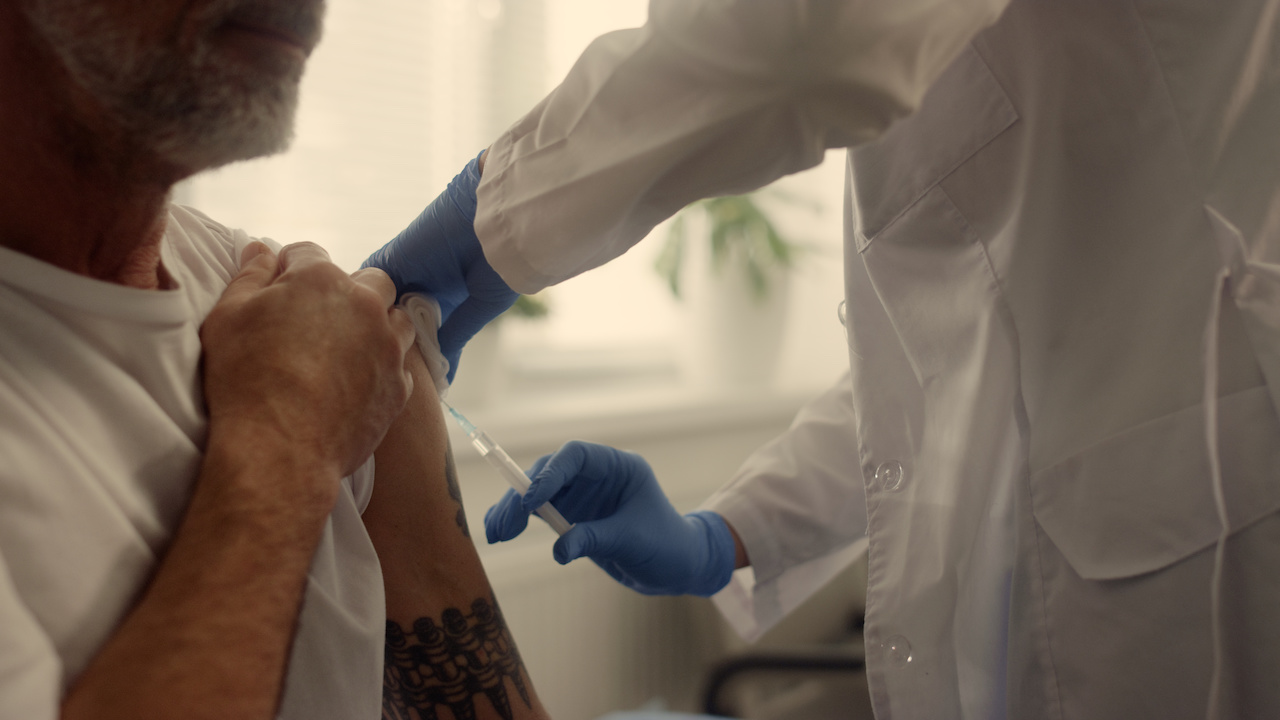- Accessibility Options:
- Skip to Content
- Skip to Search
- Skip to footer
- Office of Disability Services
- Request Assistance
- 305-284-2374
- Display:
- Default
- High Contrast
- Apply
- About UM
- Give to UM
-
Schools
- School of Architecture
- College of Arts and Sciences
- Miami Herbert Business School
- School of Communication
- School of Education and Human Development
- College of Engineering
- School of Law
- Rosenstiel School of Marine, Atmospheric, and Earth Science
- Miller School of Medicine
- Frost School of Music
- School of Nursing and Health Studies
- The Graduate School
- Division of Continuing and International Education
- Alumni
- Student-Led Research Highlights Risks of Pollutants and Mitigation Strategies
- Department of Public Health Sciences Shines on Major Public Health Meeting
- $3.2M NCI Grant Supports Study on Cannabis in Breast Cancer Treatments
- Doctoral Student Receives Prestigious F31 NIH Diversity Fellowship Grant for Groundbreaking HIV Research
- Researchers Identify Positive Outcomes of Multidimensional Family Therapy on Justice-Involved Young Adults
- M.S.P.H. Alumna Accepted into Prestigious CSTE Fellowship
- Resiliency Scholarship Empowers Public Health Student
- Empowering Resilience: Insights from Hurricane Preparedness Seminar
- Fall 2023 Orientation Marks a Promising Start for Incoming Students
- Researchers Explore Opportunities for Cancer Centers to Protect Medically High-Risk Patients from Climate-Driven Disasters
- Reentry Summit Advanced Opportunities for Justice-Impacted Individuals
- Dr. Kanamori Nishimura to Present Advancing HIV Prevention and Care through Innovative Pharmacy Strategies at Pivotal HIV Pharmacy Research Symposium
- Intervention Recognized in CDC Compendium a Milestone for HIV and Hepatitis C Testing
- Alumnus Assumes Role of Interim Provost and Executive Vice President for Academic Affairs
- Department of Public Health Sciences Honors Outstanding Educators with Inaugural Teaching Awards
- Dr. Sunil Rao Honored for Exceptional Contributions to the Department of Public Health Sciences
- Sylvester Researcher Addressed the Alarming Health Risks of Hookah Smoking and Vaping in Preparation for World No Tobacco Day
- Department of Public Health Sciences Recognizes Excellence and Honors Graduating Students at Annual Celebration Reception
- Art in Action: Empowering Communities for Health, Climate, and Collective Action
- New Study Redefines Opioid Use and Postoperative Outcomes in Thoracic Surgery
- Resiliency Scholarship Program Empowers Student in Pursuit of Public Health Education and Leadership
- Vice President’s Visit to the University of Miami Opens the Doors to Funding for the Department of Public Health Sciences
- Ph.D. Students Participate in a National Scientific Conference
- Public Health Student Wins Award from The Kuvin Foundation
- Resilience Takes Center Stage at Speaker Series Event
- Department of Public Health Created Milestone in BRIMR Rankings with Groundbreaking Research Funding Success
- Exploring the Intersections of Climate Change and Public Health: A Symposium on Societal and Health Impacts
- Ph.D. Student Awarded Research!America Microgrant to Bring Wellness Event Series to Little Havana
- DPHS Canes Student Ambassador Program Welcomes New Leaders
- Four Public Health Faculty Members Named as Recipients of the Copeland Foundation Project Initiative Award
- Faculty Received Diversity, Equity, and Inclusion Mini-Grant Award
- Letter Published in Lancet Regional Health - Americas Urges Top Ministry of Health Officials in Mexico to Authorize MPOX Vaccine Use
- Study Examined Ethical Issues in Epidemiology
- A New Research Examines Alternate Viral Suppression Prediction Models to Minimize HIV Transmission
- New Study Shows Economic Toll and Geospatial Trends of Gunshot Wounds to the Head in Miami-Dade County
- Faculty Senate Names Dr. Tatiana Perrino a Recipient of the Outstanding Teaching Award
- The Center for Health Economics of Treatment Interventions for Substance Use Disorder, HCV, and HIV (CHERISH) Held its Leadership Meeting at the University of Miami Miller School of Medicine Department of Public Health Sciences
- Researchers Assess Sustainability of Multidimensional Family Therapy
- M.P.H. Candidate is Co-Author of a New Study That Shows the Success of a Clinical Team Focused on Harm Reduction for Injection Drug Use-Related Infections
- Alumna Returned as a Visiting Scholar and Presented at Major Public Health Conference
- Student-Led Research Highlights Risks of Pollutants and Mitigation Strategies
- Department of Public Health Sciences Shines on Major Public Health Meeting
- $3.2M NCI Grant Supports Study on Cannabis in Breast Cancer Treatments
- Doctoral Student Receives Prestigious F31 NIH Diversity Fellowship Grant for Groundbreaking HIV Research
- Researchers Identify Positive Outcomes of Multidimensional Family Therapy on Justice-Involved Young Adults
- M.S.P.H. Alumna Accepted into Prestigious CSTE Fellowship
- Resiliency Scholarship Empowers Public Health Student
- Empowering Resilience: Insights from Hurricane Preparedness Seminar
- Fall 2023 Orientation Marks a Promising Start for Incoming Students
- Researchers Explore Opportunities for Cancer Centers to Protect Medically High-Risk Patients from Climate-Driven Disasters
- Reentry Summit Advanced Opportunities for Justice-Impacted Individuals
- Dr. Kanamori Nishimura to Present Advancing HIV Prevention and Care through Innovative Pharmacy Strategies at Pivotal HIV Pharmacy Research Symposium
- Intervention Recognized in CDC Compendium a Milestone for HIV and Hepatitis C Testing
- Alumnus Assumes Role of Interim Provost and Executive Vice President for Academic Affairs
- Department of Public Health Sciences Honors Outstanding Educators with Inaugural Teaching Awards
- Dr. Sunil Rao Honored for Exceptional Contributions to the Department of Public Health Sciences
- Sylvester Researcher Addressed the Alarming Health Risks of Hookah Smoking and Vaping in Preparation for World No Tobacco Day
- Department of Public Health Sciences Recognizes Excellence and Honors Graduating Students at Annual Celebration Reception
- Art in Action: Empowering Communities for Health, Climate, and Collective Action
- New Study Redefines Opioid Use and Postoperative Outcomes in Thoracic Surgery
- Resiliency Scholarship Program Empowers Student in Pursuit of Public Health Education and Leadership
- Vice President’s Visit to the University of Miami Opens the Doors to Funding for the Department of Public Health Sciences
- Ph.D. Students Participate in a National Scientific Conference
- Public Health Student Wins Award from The Kuvin Foundation
- Resilience Takes Center Stage at Speaker Series Event
- Department of Public Health Created Milestone in BRIMR Rankings with Groundbreaking Research Funding Success
- Exploring the Intersections of Climate Change and Public Health: A Symposium on Societal and Health Impacts
- Ph.D. Student Awarded Research!America Microgrant to Bring Wellness Event Series to Little Havana
- DPHS Canes Student Ambassador Program Welcomes New Leaders
- Four Public Health Faculty Members Named as Recipients of the Copeland Foundation Project Initiative Award
- Faculty Received Diversity, Equity, and Inclusion Mini-Grant Award
- Letter Published in Lancet Regional Health - Americas Urges Top Ministry of Health Officials in Mexico to Authorize MPOX Vaccine Use
- Study Examined Ethical Issues in Epidemiology
- A New Research Examines Alternate Viral Suppression Prediction Models to Minimize HIV Transmission
- New Study Shows Economic Toll and Geospatial Trends of Gunshot Wounds to the Head in Miami-Dade County
- Faculty Senate Names Dr. Tatiana Perrino a Recipient of the Outstanding Teaching Award
- The Center for Health Economics of Treatment Interventions for Substance Use Disorder, HCV, and HIV (CHERISH) Held its Leadership Meeting at the University of Miami Miller School of Medicine Department of Public Health Sciences
- Researchers Assess Sustainability of Multidimensional Family Therapy
- M.P.H. Candidate is Co-Author of a New Study That Shows the Success of a Clinical Team Focused on Harm Reduction for Injection Drug Use-Related Infections
- Alumna Returned as a Visiting Scholar and Presented at Major Public Health Conference







